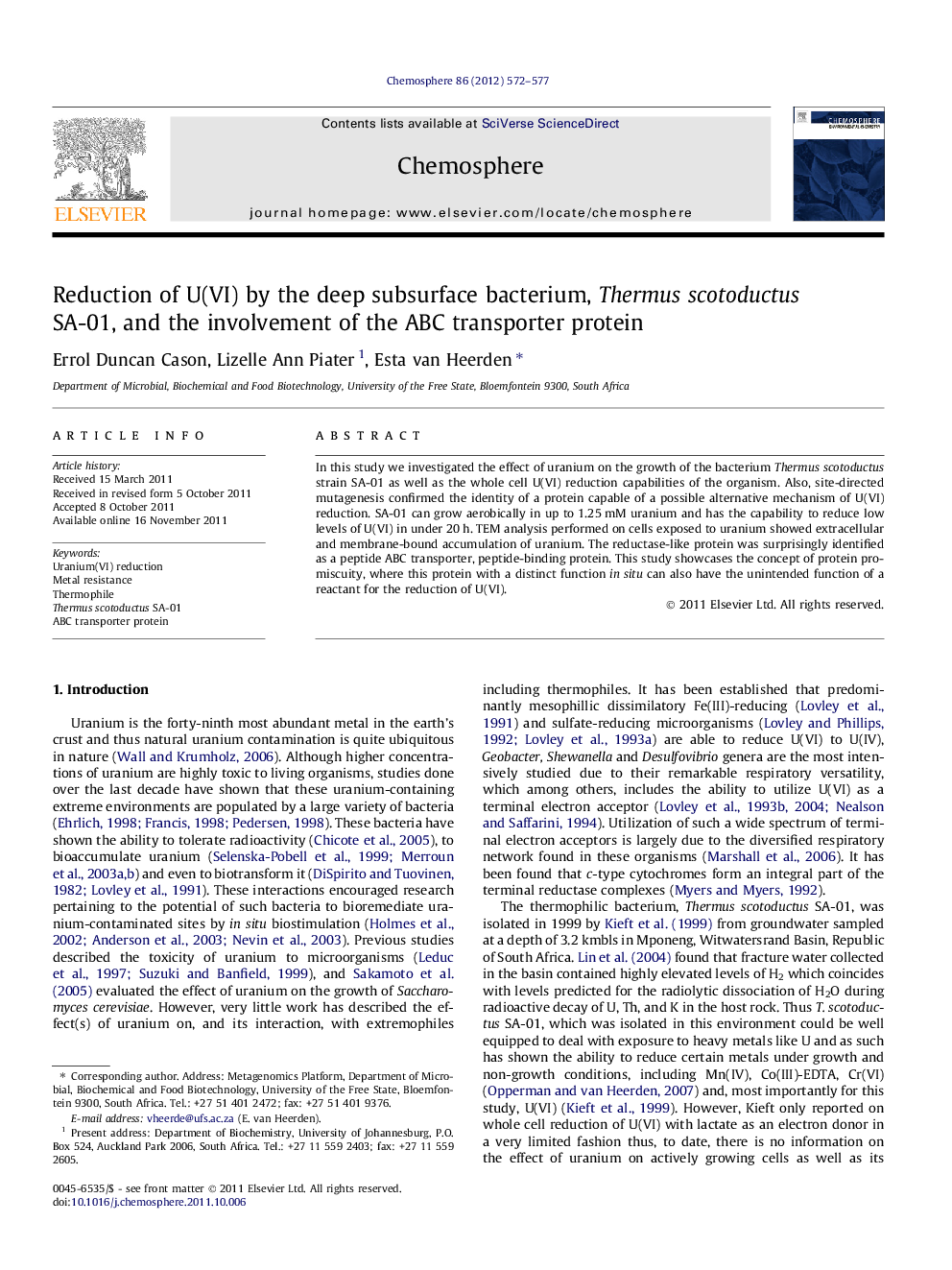| Article ID | Journal | Published Year | Pages | File Type |
|---|---|---|---|---|
| 4410161 | Chemosphere | 2012 | 6 Pages |
In this study we investigated the effect of uranium on the growth of the bacterium Thermus scotoductus strain SA-01 as well as the whole cell U(VI) reduction capabilities of the organism. Also, site-directed mutagenesis confirmed the identity of a protein capable of a possible alternative mechanism of U(VI) reduction. SA-01 can grow aerobically in up to 1.25 mM uranium and has the capability to reduce low levels of U(VI) in under 20 h. TEM analysis performed on cells exposed to uranium showed extracellular and membrane-bound accumulation of uranium. The reductase-like protein was surprisingly identified as a peptide ABC transporter, peptide-binding protein. This study showcases the concept of protein promiscuity, where this protein with a distinct function in situ can also have the unintended function of a reactant for the reduction of U(VI).
► We grew Thermusscotoductus SA-01 aerobically in up to 1.25 mM uranium. ► Using whole cells SA-01 reduced low levels of U(VI) in under 20 h with various electron donors. ► TEM analysis showed extracellular and membrane-bound accumulation of uranium. ► A peptide ABC transporter, peptide-binding protein is shown to be capable of U(VI) interactions. ► A possible mechanism for uranium(VI) reduction by the protein is elucidated.
